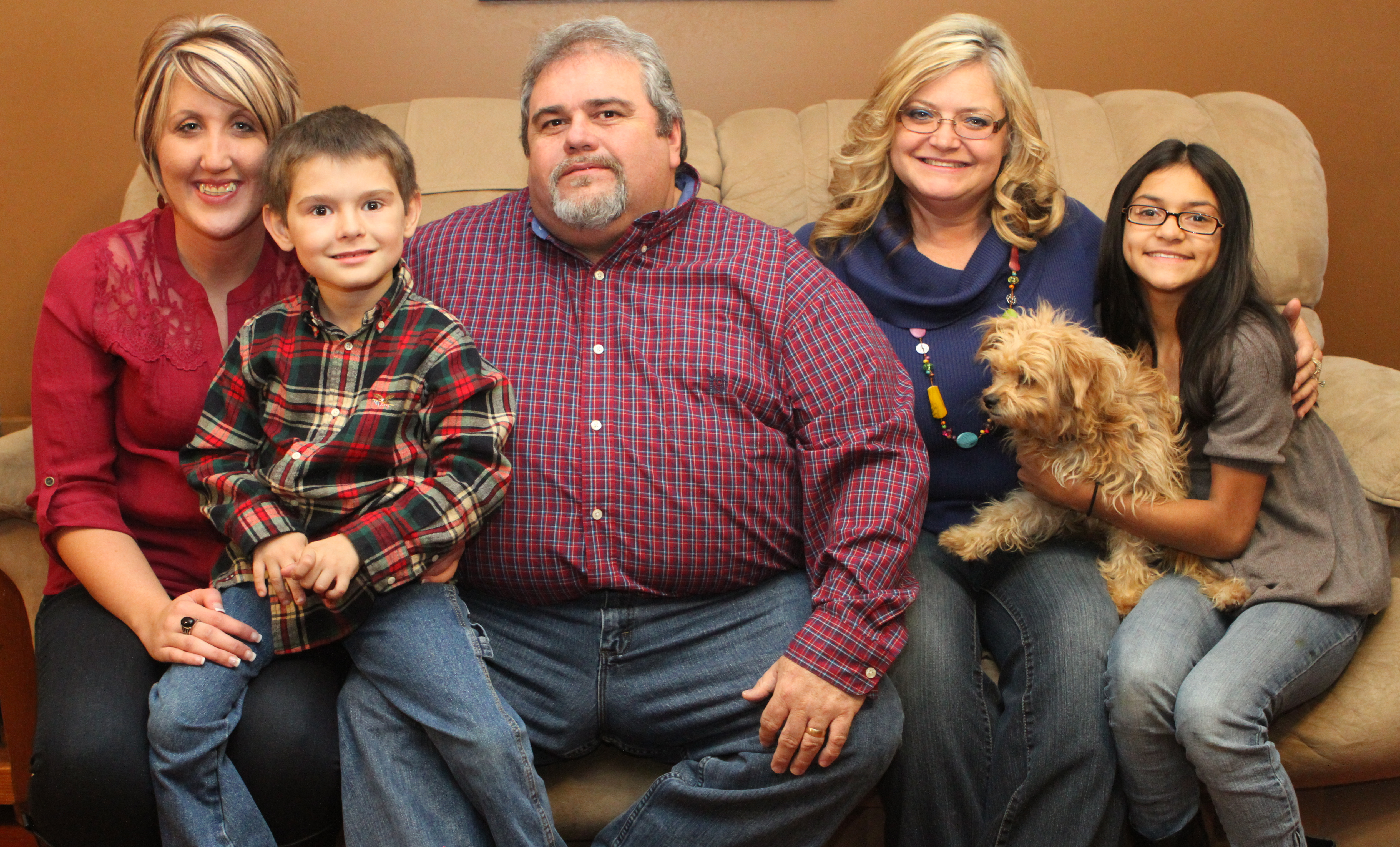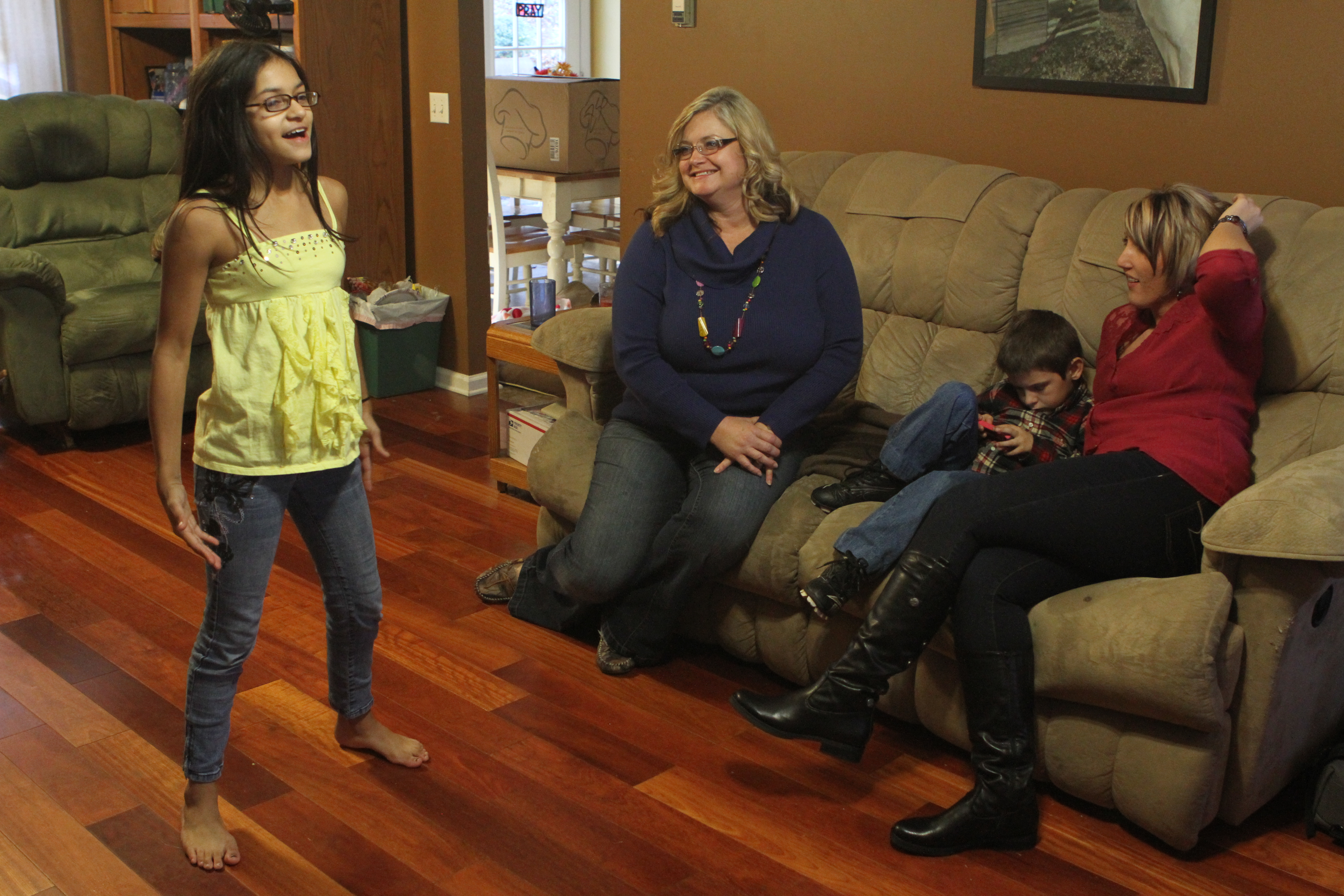BY THE NUMBERSTennessee9,017: Number of children in foster care.4,152: Number of licensed family foster homes.3.5: Average number of different foster care placements children go through.17: Percentage of children placed in facilities (rather than family foster homes).20.1 months: Average length of time spent in foster care.Georgia13,965: Number of children in foster care.801: Number of licensed family foster homes.2.3: Average number of different foster care placements children go through.18: Percentage of children placed in facilities (rather than family foster homes). 23.4 months: Average length of time spent in foster care.Alabama6,913: Number of children in foster care.3,175: Number of licensed family foster homes.3.1: Average number of different foster care placements children go through.19: Percentage of children placed in facilities (rather than family foster homes).32.1 months: Average length of time spent in foster care.Source: Childrensrights.org
Not long after Shay Love learned she and her husband could not have children of their own, she received a call from a friend who wondered if she had given any thought to adopting, or maybe even becoming a foster parent.
"I had not, but then after she mentioned it, in my mind I thought the worst," Love says. "You know, a kid running around my house with a butcher knife. I had this pre-notion. She told me I was being silly."
That was 2005 and today both Love and her foster-suggesting friend, Rhonda Garrison, are the happy and proud parents of their former foster children whom they've since adopted. All the children they've fostered and the four they've adopted - Garrison has adopted three, Love one - came from the North Georgia area.
Both also have been very active in the foster care program in Catoosa County, where they live. Love has fostered three children since 2005 and Garrison has given temporary lodging to about 15. She says "about" because some of the children only stayed with her for a few hours.
Love says she has not been a foster parent in more than a year, though she is still active in support groups for foster and adoptive parents.
"The reason I will no longer do it, and the reason the state won't let me, is because it is very hard for me not to get attached," she says. "I become a mama lion."
She laughingly shares stories of traveling to Atlanta to fight for what she believes in when it comes to foster care. For one, she'd like to see Georgia change up the order of steps in the foster parenting application process; right now, training classes for potential foster parents take place before the state makes its inspection of the actual home where the children will live.
The process should be reversed, she says, because "you can tell if the home is going to be OK" before the state pays for the training.
November is National Adoption Month (May is National Foster Care Month) and, while Garrison and Love emphasize that not all foster parents want to become adoptive parents, they're proof that it does happen.
It also happened for Wayne Holden, president of the Catoosa County Foster and Adoptive Parent Association. Holden says there are currently 18 families in the Catoosa County association, which also serves as a support group for foster and adoptive parents. He says there are nine families in the county serving as foster parents and 69 kids in the foster care system.
The reasons why people become foster parents are as diverse as the children they take in, he says. And, despite the common perception, not all biological parents whose children are removed from the home are bad parents or bad people, he says. There are any number of reasons why a parent might be forced to turn over a child, from incarceration to inability to provide proper care for financial reasons such as losing a job.
"It's the child who gets caught in the middle, though," he says.
Holden is in the process of adopting a 4-year-old boy; Love's son was 17 months old when he first came to live with her and her husband, Shannon, six years ago, and the Garrisons adopted their three children - ages 1, 5 and 17 at the time - in 2007. The oldest, Tiffany, is now 23.
She says people always ask her about why she wanted to be adopted at 17. "A lot of people think it's weird, but my point of view was that I wanted a permanent family."
She was scared when she was taken from her natural family at 15 (she and the Garrisons don't want to share why she was removed), "but looking back, it was the best thing that's ever happened."
The ultimate goal of the foster care system, Garrison says, is reunification. Foster homes are there to be a temporary and safe place where a child can stay for a few hours or many months. But sometimes reunions just don't happen.
The process
Once a child is taken from a home, a hearing is scheduled to take place within 24 to 72 hours. At the hearing, a judge determines if the family should be reunified immediately or create a plan of action and set goals and guidelines the parent(s) must follow in order to get their child back. Completing this steps can take months or a couple of years.
If the parent fails to meet the guidelines or decides that he or she can't care for the child, a termination of parental rights is issued and the child can then be adopted.
In Tennessee, there are different levels of foster parenting and parents, depending on the needs of the child, says Department of Children's Service Communication Director Rob Johnson. Nurses with medical training, for example, are often trained to be foster parents for children with extreme medical needs.
Parents can be dual certified in Tennessee to become foster parents and adoptive parents "in one fell swoop" through the Parents As Tender Heaters process, or PATH, he says. The process is thorough "because you want to make sure that parents are doing it for the right reasons. You want to make sure the family has room for a child, and you want to know who these people are. We do background checks and you have to be really thorough."
He says it is important to understand that the child has been through a traumatic time, and there will be many demands on the foster parent's time and emotions.
"The kids will have a lot of appointments," Johnson says. "They likely will be enrolled in a new school. They'll meet with therapists and doctors."
Love, Garrison and Holden say adopting a child through the foster care process is a long and often frustrating process in Georgia, and much of the heartache and frustration stems from dealing with the biological parents. It's hard, for example, for foster parents to pick up the pieces and calm a child who's had an unexpected and sometimes traumatic visit from a parent who then turns around and leaves again.
"It is a roller coaster ride with lots of tears," Love says.
Becoming a foster parent was a bit of an up-and-down ride also, but one Garrison says she understood and appreciated, including the ultra-thorough background check and application process the state put her through.
"The state knows more about me than my family," she says.
Getting approved
Applicants are given a questionnaire, which Love says is about three inches thick. They then must attend state-approved classes, usually around 20 hours' worth, where they learn everything from rules and regulations to tips on how to parent. Applicants also do some role playing.
"You will know if it's for you by the time the classes are over," Garrison says.
But during the application process, potential foster parents discover that they have plenty of say in which kids they will take in. They can narrow the options by age, race, gender, health and special needs, for example.
State officials then make several house visits to check for everything from cleanliness to the temperature of the water heater. Garrison says it's all to "make your home safer," and that she always felt like everything was being done to make her a better foster parent.
"They were great to work with," she says. "I never even thought about how hot my water was, and it was a little too high. They made my house safer for all of us."
Foster parents are not required to keep a child that doesn't fit in their household for whatever reason.
Though the state does provide monthly stipends - $627 to $750 a month per child in Tennessee, $444 to $572 in Georgia, $410-$446 in Alabama - "you will not get rich from it," Love says. "In fact, you will lose money if you are doing it right."
But that doesn't mean you "have to be rich, either, to be a foster parent," Garrison says.
"You have to do it for the child," she says. "Not everybody wants to adopt, and you may not bond with every child. You should not become a foster parent on a whim. You should be kind and nurturing, but also structured and willing to provide discipline and have guidelines."
Adopting a child that was in foster care can take awhile, especially if the parent "works the system," Holden says. Fulfilling just one item or requirement on the set of guidelines set by the courts can trigger an extension of several months, he says, for example.
Learning the rules
Tiffany Garrison says going to live with complete strangers was difficult, but the biggest adjustment was learning to live with rules.
"For 15 years, I never had any," she says. "I was free and did what I wanted. When I came here there were rules, but I was the type of person that wanted to get along."
The experience, she says, has given her an insight into what being a parent can - and should - be like.
"It's definitely changed my outlook on becoming a parent. It showed me how parents are supposed to treat kids and shown me the differences between right and wrong. I never had that for the first 15 years of my life."
Given all the starts and stops, the tears, the moments of uncertainty and the moments of overwhelming heartache, why do people open their hearts and their homes to children they had no attachment to before the state brought them to their front door?
The question brings a big smile to Rhonda Garrison's face and she does what most modern-day parents do. She reaches for her cellphone and starts looking for pictures. Pictures of her smiling kids, which she quickly shares.
"That's why."
Contact Barry Courter at 423-757-6327 or bcourter@timesfreepress.com.


